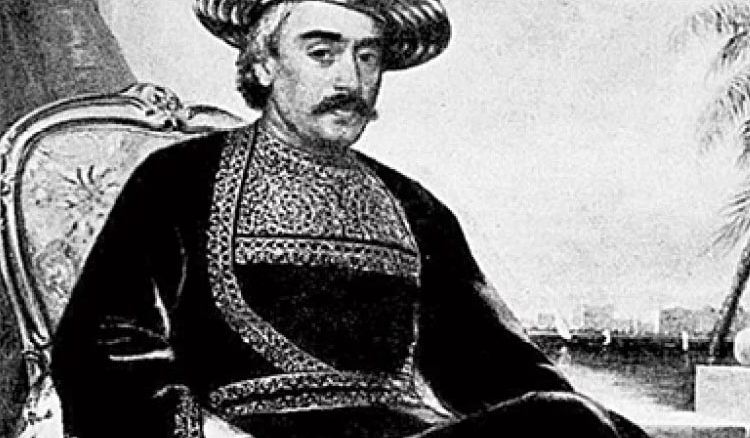Dwarkanath Tagore, best known for his significant role in the Bengal Renaissance of the 19th century, was the grandfather of Rabindranath. He was a man so wealthy that he earned the epithet of Prince. Tagore was among the first Indian industrialists and invested in a range of businesses from steam engines to banking in the 1820s. He was also the first Indian to become the director of a bank. In 1834, he and his partners started the first Indian and British trading agency -Carr, Tagore, and Co. He was a man who dreamt of bringing England’s industrial revolution to the Hoogly shoreline.

Dwarkanath was against Sati, the ritual of women committing suicide by burning themselves on the pyre of their dead husbands. He got Lord William Bentinck to abolish Sati in 1829 and make it a criminal offense. It is almost impossible to conjure up today how big a victory this was in 19th century Bengal.
Prince Dwarkanath Tagore died during a visit to the UK in August 1846 and was buried at Kensal Green Cemetery in north-west London, where his bust will be inaugurated in August this year. The Bengal Heritage Foundation is spearheading the project along with the Friends of Kensal Green group as their humble tribute to this great son of Bengal and to keep his heritage alive for the future generations.
 বাংলায় পড়ুন
বাংলায় পড়ুন














